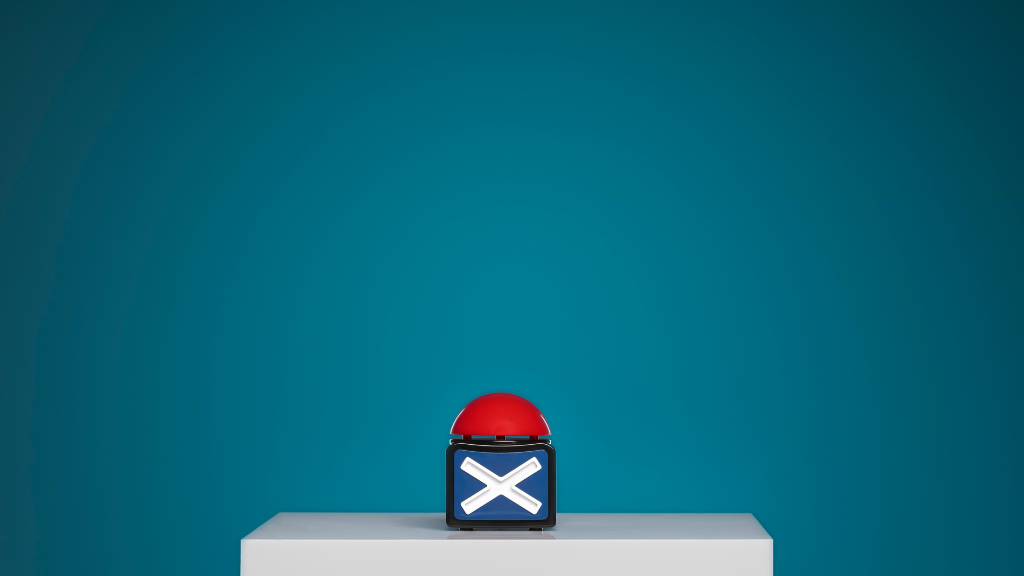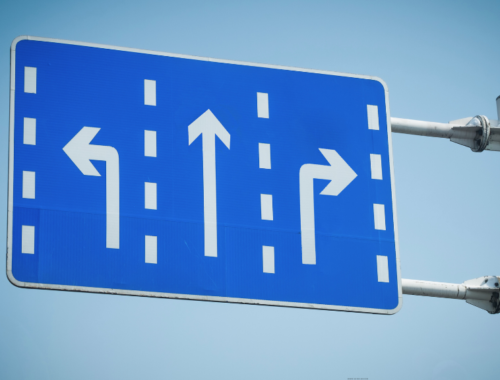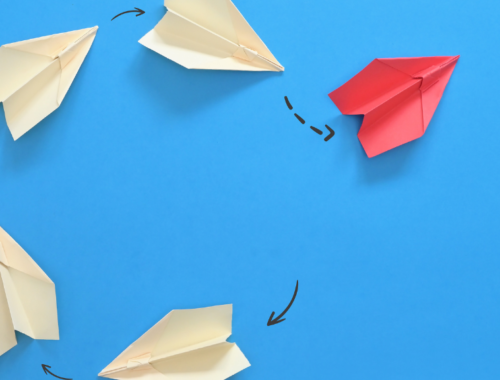
GUILT: THE INVISIBLE WEIGHT THAT SABOTAGES OUR LIVES
“There’s no problem so awful that you can’t add a little guilt to make it worse.” – Bill Watterson
Today, I invite you to reflect on an aspect that we often carry without realizing it: guilt. How about starting the day with a new perspective, understanding how this invisible weight, when accumulated, not only harms our mental health but also worsens existing problems? Bill Watterson, in his brilliant simplicity, offers us this powerful reflection. His quote resonates deeply, as it encapsulates a universal truth. Guilt, while a seemingly harmless human feeling, can amplify our problems. But why does this happen? After all, isn’t guilt a sign of conscience and self-awareness? Yes, but its essence is ambivalent. When not understood or processed, it becomes a paralyzing force that prevents us from acting and transforming our circumstances.
As we dive into this universe together, I hope we can decipher the intricate relationship between our feelings of guilt and the way we deal with life’s challenges.
The Cause and Effect of Guilt
To understand this, we must acknowledge that human behavior is a complex and fascinating field, where the relentless pursuit of control and understanding often manifests itself in instinctive emotional and behavioral reactions. It is from the fragility of the mechanisms emerging from this dynamic that the tendency arises to blame, both ourselves and others, for the misfortunes and setbacks we face. This reaction is not limited to a matter of morality or responsibility; it is deeply rooted in the psychic defense strategies of our mind, which seek to protect our identity and avoid emotional discomfort.
This perception leads us to reflect on the role of guilt in our lives. Guilt, when not acknowledged and integrated, can become an obstacle, limiting our ability to learn from our mistakes and progress on our personal journey. By understanding the roots of this tendency, we can begin to dismantle the vicious cycle that keeps us trapped in excessive self-criticism and defensiveness. Ultimately, true emotional freedom lies in accepting our failures as integral parts of the human experience, allowing us to transform guilt into a catalyst for growth and change.
Think about the moments when you felt overwhelmed by a problem. It may have been a situation at work, a family crisis, or a decision that, looking back, you believe could have been different. Guilt appears as a signal that initially seems to alert us to our mistakes, prompting us to reflect and learn. However, its shadow quickly lengthens. What was a brief moment of introspection can turn into a cycle of negative thoughts, where the mind incessantly revisits the past, searching for points of failure and sinking into self-criticism.
This self-analysis, which should serve as a path for growth, often becomes fuel to feed low self-esteem. Instead of learning from the experience, we become trapped in an emotional loop that undermines our confidence and prevents us from moving forward.
When something goes wrong, whether it’s a small slip or a major disappointment, our brain immediately tries to understand the situation. In other words, the human mind is programmed not only to seek causes and effects but also to justify each action. This relentless search for a “culprit” reflects our need to make sense of the chaos and randomness of life. Instead of accepting that life is full of uncertainties and unforeseen events, many people end up projecting their frustrations and fears onto others, especially when they feel vulnerable. In these moments, the tendency to direct these emotions outward becomes more evident, particularly when people feel threatened or vulnerable and lack the internal resources to cope with the situation.
The Impact of Guilt on Relationships
“Fairness is not blaming others for our mistakes.” – Eric Hoffer
Psychology teaches us that channeling guilt outward can work as a defense mechanism, avoiding confrontation with our own inadequacy and low self-esteem regarding the mistakes we’ve made. Imagine, for instance, a professional facing a mistake in a project. Instead of reflecting on their responsibility, they quickly seek an external culprit. Blaming the company’s lack of resources or a colleague’s poor decision not only exempts the individual from responsibility but also masks an internal fragility that is often difficult to bear. This inability to deal with oneself generates anguish in the face of the difficulty of recognizing personal flaws, fueled by the fear of exposing one’s shadows.
This behavior, although it may offer temporary emotional relief, hinders genuine growth and learning. Instead of taking responsibility and reflecting on their actions, the person seeks refuge in justifications, perpetuating a cycle of uncertainty and insecurity. At this point, human behavior becomes a fascinating field of study, widely explored by neuroscientists and behavioral psychologists. Guilt is not merely an emotion but a cognitive response that activates our survival system. When it arises, our brain, especially emotional areas like the amygdala, amplifies this feeling, intensifying our emotional state and trapping us in a cycle of stress and anxiety.
It’s no surprise that instead of learning from our mistakes and moving forward, we often drown in a sea of regrets, where every problem seems bigger than it actually is. At this moment, we tend to seek a culprit. The habit of blaming others is often associated with personality traits such as narcissism, behavioral deviations, and low frustration tolerance. But it’s not just that; there are deep psychic issues that can lead us to this, such as a lack of autonomy and dependence on external validation, which contribute to this dynamic. Those who lack a sense of responsibility tend to avoid the pain of error, preferring to shift the blame onto others. This behavior is similar to that of children who, not fully understanding the consequences of their actions, quickly seek a scapegoat to avoid reprimands.
Blaming oneself or others is not necessarily a conscious choice; it is deeply connected to the person’s emotional state and how they deal with their limitations. Although it may seem like an effective strategy for maintaining the ego intact, this dynamic can hide deep psychic issues, leading to a continuous state of anguish and long-term devastating consequences. The refusal to acknowledge and learn from one’s own mistakes results in emotional stagnation and the development of a false sense of security. This incapacitates the individual from seeking challenges that foster growth.
When we avoid confronting our flaws, we limit our own growth and perpetuate superficial and toxic relationships. Fears, anger, and sadness become constant, shaping a distorted emotional reality that affects not only the individual’s mental health but also their social interactions. Therefore, it is essential to reflect on how guilt can be transformed from an obstacle into a learning tool, offering a path for self-discovery and strengthening interpersonal relationships.
The Emotional Cost of Guilt Projection
“Let us strive to be more the parents of our future than the children of our past.”
– Miguel de Unamuno
But why does guilt have the power to amplify our challenges? The answer lies in at least two fundamental issues: one relates to our personal history, through beliefs and biases developed from childhood, and the other is linked to how we emotionally handle our expectations when creating our realities. Although these two issues are interconnected, the first results from deficiencies—fundamental needs that were unmet, especially during childhood.
In childhood, these needs must be met for healthy development. They include love and unconditional acceptance, which create a solid foundation for self-love and self-esteem; a sense of belonging, which helps us form meaningful relationships; and respect, which validates our emotions and opinions. We also need appropriate challenges to stimulate our growth, as well as the freedom and autonomy to explore and make decisions. Motivational support and incentives in a safe and stable environment are equally crucial, as are clear boundaries that help us understand what is acceptable. Moreover, it is essential that children learn to recognize and express their emotions. Support in understanding and processing feelings helps build emotional balance, crucial for healthy relationships throughout life, as well as providing support in building resilience when facing difficulties and failures. Learning to deal with adversity is a vital skill that prepares us for the challenges of adult life.
When these fundamental needs are not met, especially during childhood, we can develop limiting beliefs that follow us into adulthood. These beliefs may manifest as a deep fear of failure or not being enough, leading to the projection of guilt.
Now, when we set high expectations and idealize perfect actions and outcomes, guilt arises when we fail to meet them, reminding us that we could have done more, that we made mistakes or failed. However, this is an illusion. Guilt makes us believe that there was a way to act without errors, an unattainable perfection. In this case, we amplify our suffering, directly impacting our self-love and self-esteem, creating a continuous cycle of self-devaluation.
Thus, our inability to deal with our own responsibilities often leads us to project guilt as a defense against the difficulty of confronting ourselves. Unconsciously, this projection not only hinders our personal growth but also negatively affects our interpersonal relationships. By avoiding facing our mistakes and transferring responsibility to others, we perpetuate a cycle of cognitive and behavioral limitations that continuously affect our interactions, fueling superficial and toxic relationships.
In this scenario, emotions such as fear, anger, and sadness become constant, shaping a distorted emotional reality that compromises our mental health and affects our emotional bonds. The lack of responsibility is not just an escape but a barrier that prevents authenticity in relationships, keeping us trapped in harmful dynamics that prevent genuine connection.
Being unable to deal with the consequences of our actions not only affects the individual who blames others but also creates a toxic environment for those around them. Healthy relationships are built on mutual responsibility and the acceptance of mistakes. When a team member or person in a relationship fails to manage their own guilt, this can lead to resentment, distrust, and emotional breakdown. Instead of learning from experiences, people become prisoners of a vicious cycle of denial and projection. This pattern hinders not only individual growth but also collective development, leading to stagnation and an increasingly hostile work or living environment.
The Path to Responsibility
“We are not defined by our mistakes but by how we choose to deal with them. Let guilt serve as a reminder that we are in a constant process of learning and not as an obstacle to our evolution.”
– Marcello de Souza
Throughout history, thinkers and behavioral scientists have explored the dynamics of error and guilt. The tendency is that the more we delve into ourselves, the clearer we become about the importance of embracing our flaws. Guilt should not be seen as a burden but as a sign of humanity and vulnerability. However, as we have seen throughout this article, the problem arises when, instead of accepting it and transforming it into learning, we allow it to dominate and prevent us from acting.
So, how can we turn guilt into an ally rather than a burden? First, it is essential to recognize that when dealing with problems, our interpretation is limited by the moment we live in. A decision that seemed correct at one point may appear wrong at another, but this is part of life’s flow. Here, it becomes essential to cultivate a more compassionate view of oneself. It is vital to pause and assess the situation critically. Ask yourself, “What could I have done differently?” or “What lessons can I learn from this experience?” This approach not only promotes a sense of responsibility but also creates space for personal growth. Accepting that mistakes are part of the human experience paves the way for evolution, avoiding entrapment in incessant self-criticism.
The next step is transformation. Understanding that guilt arises as an alert and that by acknowledging and integrating it healthily, we can act more assertively and calmly when facing problems. Practices such as self-reflection, mindfulness, and emotional development are tools that can significantly aid in this process. By integrating these elements into our daily lives, we can train our brains to adopt a learning mindset rather than a guilt mindset. Thus, true emotional freedom becomes possible, allowing each individual to not only take responsibility for their actions but also become more resilient in the face of adversity. In other words, guilt must be converted into awareness, a drive for change, and the development of new attitudes. By recognizing this, we stop amplifying our problems and become agents of our own transformation.
Finally, remember that the tendency to blame others is a reflection of a primary psychological defense we all use to avoid emotional pain and discomfort. While this strategy may offer temporary relief, its repercussions are harmful to both the individual and the relationships around them. The cost of this is much greater than the false relief it offers. Therefore, we must strive to cultivate a culture of responsibility and continuous learning. By doing so, we not only promote our own growth but also strengthen relationships and the emotional health of those around us. True freedom lies in accepting our imperfections and in the ability to learn from each experience, regardless of how it presents itself.
In Conclusion
The reflection I would like to leave is this: how many times have you allowed guilt to dictate your behavior? How many opportunities were lost out of fear of failing again? How about reinterpreting this feeling, using it as a compass to redirect your path and reach a more authentic version of yourself? Remember, true transformation begins when we acknowledge our vulnerabilities and embrace them with courage and love.
If this message resonated with you, share your thoughts in the comments below. Let’s explore together how to turn challenges into growth and enhance our journey toward a more conscious and fulfilling life. And if you identified with this approach, know that I am here to assist you on your journey of self-discovery and personal development.
Did you enjoy this article? 🌟
Thank you for following another exclusive post by Marcello de Souza on human behavior!
Hello, I’m Marcello de Souza! My journey began in 1997 as a leader and manager at a large IT and Telecom company. Since then, I have led significant network structuring and optimization projects in Brazil. Driven by a curiosity and passion for behavioral and social psychology, I delved into the fascinating world of the human mind in 2008.
Today, I am a professional dedicated to uncovering the secrets of human behavior and driving positive change in individuals and organizations. With a Ph.D. in Social Psychology and over 27 years of experience in Cognitive Behavioral and Organizational Human Development, my career spans various areas:
• As a Senior Master Coach & Trainer, I help my clients achieve personal and professional goals, generating extraordinary results.
• As a Chief Happiness Officer (CHO), I cultivate an organizational culture of happiness and well-being, enhancing productivity and team engagement.
• As an Expert in Language & Behavioral Development, I refine communication and self-awareness skills, empowering individuals to face challenges with resilience.
• As a Cognitive Behavioral Therapist, I use advanced techniques to overcome obstacles and promote a balanced mind.
• As a Speaker, Professor, Writer, and Researcher, I share valuable insights at events, trainings, and publications, inspiring positive change.
• As a Consultant & Mentor, my experience in leadership and project management allows me to identify growth opportunities and propose personalized strategies.
My strong academic background includes four postgraduate degrees and a Ph.D. in Social Psychology, as well as international certifications in Management, Leadership, and Cognitive Behavioral Development. I am a co-author of the book “The Secret of Coaching” and the author of “The Map Is Not the Territory, the Territory Is You” and “The Diet Society” (the first of a trilogy on contemporary human behavior – 09/2023).
Allow me to be your partner on this journey of self-discovery and success. Together, we will uncover a universe of behavioral possibilities and achieve extraordinary results. I invite you to be part of my network! As a lover of behavioral psychology, social psychology, and neuroscience, I have created a YouTube channel to share my passion for cognitive behavioral development.
All data and content in this article or video are exclusive, based on philosophical concepts and proven scientific studies, to ensure the best content for you.
Don’t forget to:
• Leave your comment
• Share with friends
• Subscribe to the official Marcello de Souza YouTube Channel: https://www.youtube.com/@marcellodesouza_oficial
• Visit the official website: www.coachingevoce.com.br / www.marcellodesouza.com
• Visit my blog: www.marcellodesouza.com.br
• Check out the latest book: https://www.marcellodesouza.com.br/o-mapa-nao-e-o-territorio-o-territorio-e-voce/
• Commercial Contact: comercial@coachingevoce.com.br
• Write to me at: R. Antônio Lapa, 280 – Sixth Floor – Cambuí, Campinas – SP, 13025-240
Connect with me on social media:
• LinkedIn: https://www.linkedin.com/company/marcellodesouzaoficial/
• Instagram: @marcellodesouza_oficial
• Instagram: @coachingevoce
• Facebook: https://www.facebook.com/encontraroseumelhor/
• Facebook: https://www.facebook.com/coachingevoce.com.br/
Be a VIP List subscriber to receive exclusive weekly articles authored by me: contato@marcellodesouza.com.br
Portfolio: https://linktr.ee/marcellodesouza
Presentation and adaptation: Marcello de Souza
#IdentidadeEmTransformação #IlusãoDoFimDaHistória #CrescimentoPessoal #Autoilusão #MudançaConstante #Autodescoberta #TransformaçãoInterior #CoragemParaCrescer #LiberteSeuPotencial #InspiraçãoParaViver #AceiteSuasImperfeições #CaminhoDaAutenticidade #ConexõesSignificativas #HumanidadeEmEvolução #GratidãoPelaJornada #marcellodesouza #coaching #terapia #terapiacognitivacomportamental #encontreseumelhor
#marcellodesouza #marcellodesouzaoficial #coachingevoce #learning #success #failure #leadership #learningculture #growth #marcellodesouza #marcellodesouzaoficial #coachingevoce #desenvolvimentocognitivocomportamental #reflexão #autoconhecimento #transformação #filosofia #psicologiacomportamental #liderança
Você pode gostar

DO NOT BE MISTAKEN — THE MIDDLE WAY IS NOT BALANCE
19 de janeiro de 2026
THE ILLUSION OF STRATEGIC PRESENCE
6 de janeiro de 2026
